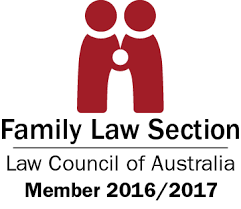What are the requirements for a Joint Application for Divorce?
There are several requirements you need to satisfy to make an application for a divorce in Australia.
To be eligible for a joint application for divorce, you must satisfy one of the following four points.
- You are an Australian Citizen by birth.
- You have been granted Australian citizenship – we must provide evidence.
- You have been residing in Australia for the last year.
- You currently live in Australia and plan to continue doing so.
You need to have been separated for at least 12 months.
Australia has what is known as a no-fault divorce system. No-Fault means that you do not need to explain why your marriage has “broken down irretrievably” All that is required is to show that you have been separated for at least 12 months. Once you have established the date that you have separated, you’re free to make an application or a joint divorce 12 months after that date.
No possibility of the marriage continuing.
The family court must also be satisfied that your marriage has ended permanently. Unless it is certain, the court will not allow you to divorce.
Some other things that need to be considered.
You will need to provide a copy of your marriage certificate as part of your application for divorce. If you don’t have one, you can contact birth deaths and marriages in your capital city and pay for a new one.
You don’t have to be married in Australia, but you must provide a copy of your marriage certificate from the country you are married in. If that marriage certificate is not in English, we must get a court-approved translator for the divorce application. We can provide that service and will advise you of the associated cost.
The Family Court wants to ensure that your children have proper arrangements for their welfare. It doesn’t mean you need to have court orders, but they will want to know who the children live with, who they spend time with, their financial support, health and education. Your divorce application must also include any children adopted in the marriage or any children treated as members of your family, and this includes foster children.
-
Separated but living under 1 Roof.
It is possible to be separated but still be living in the same house, which is known as separation under one roof. Living together may happen for a number of reasons, including financial reasons or the best interests of your children. It means that you can still progress with a divorce application. However, you will be required to demonstrate that you are not living as husband and wife. We do this by providing the family quarter with affidavits from both parties to explain the nature of their relationship.
-
Have you been married for more than two years?
If you have been married for less than two years, it is still possible to get divorced. You will need to attend some counselling to make sure that there is no possibility of your marriage continuing. You will need a certificate from the counsellor certifying that you have attempted conciliation. If this is your situation, please contact us, and we will step you through the process.
In summary
- You must show that either your spouse or yourself can demonstrate that you are an Australian citizen or have lived here for the last 12 months.
- You and your spouse have been separated for at least 12 months.
- There is no chance you will stay in the relationship with your spouse.
- A copy of your marriage certificate, either in English or translated.
- Demonstrate that children have made proper arrangements made for them.
- If you have been married for less than 12 months copy of a counselling certificate










